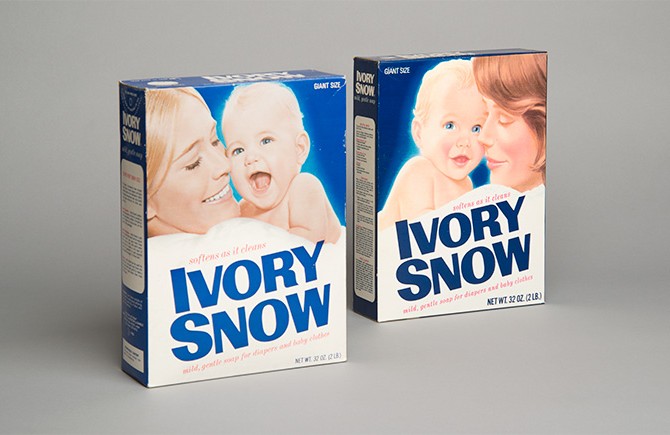99 44/100% Pure

My first encounter with the phrase “99 44/100% Pure” was when Gene Wilder uttered it in the 1971 movie Willy Wonka & the Chocolate Factory, as he unlocked the door and admitted five lucky children to his sugar-coated, psychedelic wonderland.
Procter & Gamble (P&G), however, had used the term since the late 19th Century as one of the slogans for their personal care brand, Ivory.
This essence of purity and wholesomeness was undoubtedly what P&G were trying to capture when, in 1970, they selected Marilyn Chambers as the new cover girl for their Ivory Snow packaging. Posing as a mother with child, Chambers was the fresh-faced, all-American girl next door, whose image was to feature on every box of Ivory Snow detergent in supermarkets across the United States.
Unbeknown to P&G, in the two year period between casting Chambers as their ‘Ivory Snow Girl’ and the release of the new packaging, Chambers had relocated to San Francisco and starred in “Behind The Green Door”, one of the most successful adult films from this golden age of adult cinema. Produced by the Mitchell Brothers, the 1972 film was made on a shoestring budget of $60,000 and went on to gross over $50 million at the box office. The timing of the packaging’s release was serendipitous for the Mitchells as it coincided with the release of the movie and helped contribute to the film’s phenomenal success. The Mitchells even adopted the 99 44/100% Pure slogan to advertise the actress’ appearance in the movie (and boost ticket sales), much to P&G’s undoubted chagrin.
Upon discovering her new career as an adult film actress, and despite a spike in Ivory Snow sales, an embarrassed P&G withdrew the packaging. Judging it to be inconsistent with the image they were trying to portray, our ubiquitous Ivory Snow Girl was replaced with an illustrated counterpart. However, the purity claims of Ivory Snow were, to a certain generation, forever and inadvertently tainted.
Share